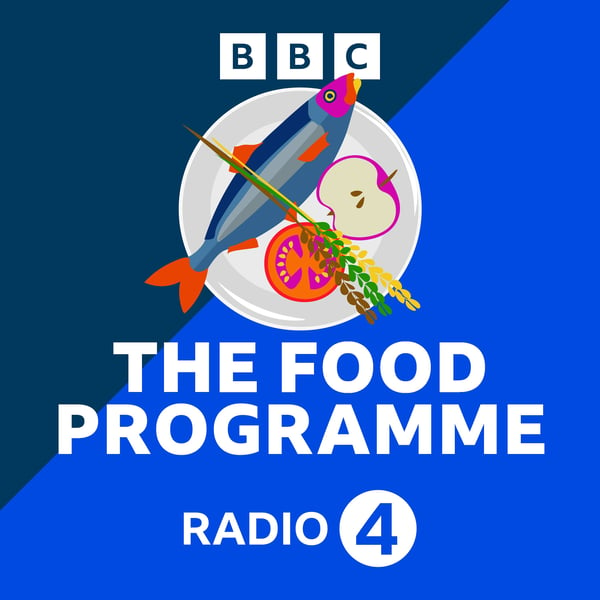1971: A year that changed food forever?
The Food Programme
BBC
4.4 • 943 Ratings
🗓️ 9 May 2021
⏱️ 30 minutes
🧾️ Download transcript
Summary
Dan Saladino asks if the year 1971 was a turning point for how the world eats?
It was a year of contrasts: McDonalds increased the portion sizes of the beef burger it served with the launch of the Quarter Pounder, meanwhile one of the best selling books of 1971 was full of vegetarian recipes, 'Diet for a Small Planet' by Frances Moore Lappe, which argued hunger could be eliminated from the world if we stopped eating meat and embraced plant-based diets.
In the UK the food industry was innovating like never before and creating new types of processed foods and supermarkets were expanding across the country. Some embraced these changes, whereas others reacted to them, a split that was reflected in the publication of two important books that year. Delia Smith's 'How to Cheat at Cooking' offered tips on how tinned convenience foods could be used to create quick and delicious dishes, whereas, Jane Grigson's Good Things, was a celebration of slower, seasonal and more traditional cooking.
Senior staff writer at Bon Appetit magazine Alex Beggs argues 1971 was a turning point for food and explains how social changes and economic forces helped transform the way people ate in the United States (from the opening of the first branch of Starbucks to cups of instant noodles going on sale). Food historian Polly Russell explains how a similar process was also underway in the UK and how we can see the legacy of that transformation in our food today.
Dan also speaks to Professor Tim Lang about the importance of the Concert for Bangladesh, organised by George Harrison to fight famine in south Asia. He also catches up with Frances Moore Lappe to ask what 'Diet for a Small Planet' can tell us about food and our world fifty years on.
Produced and presented by Dan Saladino
Transcript
Click on a timestamp to play from that location
| 0:00.0 | You're about to listen to a BBC podcast and I'd like to tell you a bit about the |
| 0:03.8 | podcast I work on. I'm Dan Clark and I commissioned factual podcasts at the BBC. |
| 0:08.6 | It's a massive area but I'd sum it up as stories to help us make sense of the forces shaping the world. |
| 0:15.3 | What podcasting does is give us the space and the time to take brilliant BBC journalism |
| 0:19.8 | and tell amazing compelling stories that really get behind the headlines. |
| 0:23.7 | And what I get really excited about is when we find a way of drawing you into a subject |
| 0:28.4 | you might not even have thought you were interested in. |
| 0:30.2 | Whether it's investigations, science, tech, politics, culture, true crime, the environment, |
| 0:36.1 | you can always discover more with a podcast on BBC Sounds. |
| 0:40.0 | Hello, you've downloaded a podcast of BBC Radio Falls The Food Programme. |
| 0:44.6 | I'm Dan Saladino. Welcome to our world. |
| 0:48.0 | From cooking to culture, politics to pleasure. |
| 0:51.2 | We hope you enjoy this edition. A few months ago a team of |
| 0:57.4 | journalists went through the archives of the food magazine they work on. |
| 1:00.9 | Bonapete based in New York. They wanted to find out what their |
| 1:04.7 | predecessors had been reporting on half a century ago and after hours of |
| 1:09.2 | reading they realized so much had taken place in 1971. |
| 1:14.6 | They concluded it was a year that changed the way we eat |
| 1:18.5 | and the way we think about food forever. |
| 1:22.2 | That idea intrigued me was 1971 a turning point for food and if so why? We can |
| 1:30.2 | find out as this is radio, time travel is easy. |
| 1:34.4 | It turns out 1971 is a pretty scary time. People are predicting that food is about to run out. |
... |
Please login to see the full transcript.
Disclaimer: The podcast and artwork embedded on this page are from BBC, and are the property of its owner and not affiliated with or endorsed by Tapesearch.
Generated transcripts are the property of BBC and are distributed freely under the Fair Use doctrine. Transcripts generated by Tapesearch are not guaranteed to be accurate.
Copyright © Tapesearch 2025.

